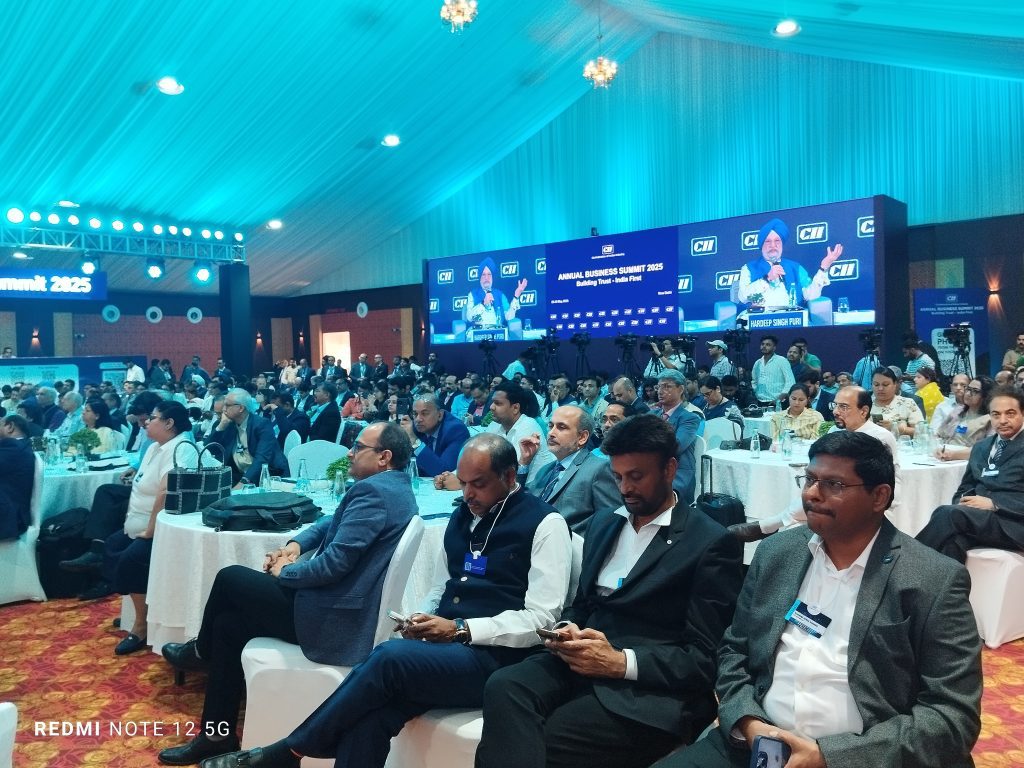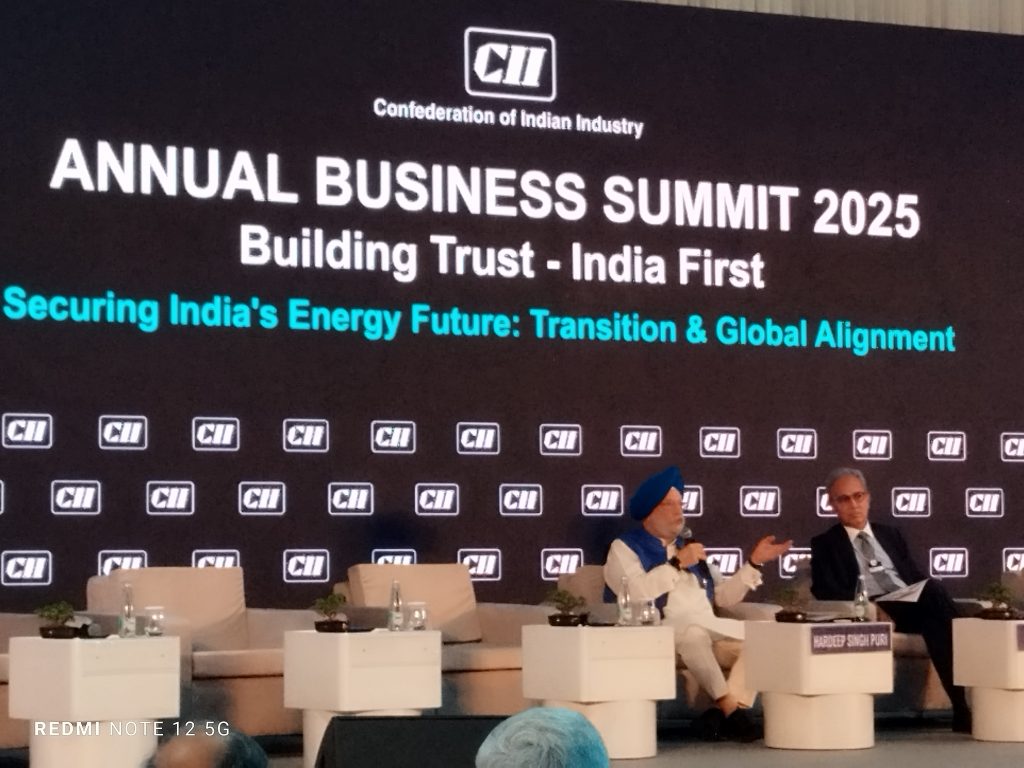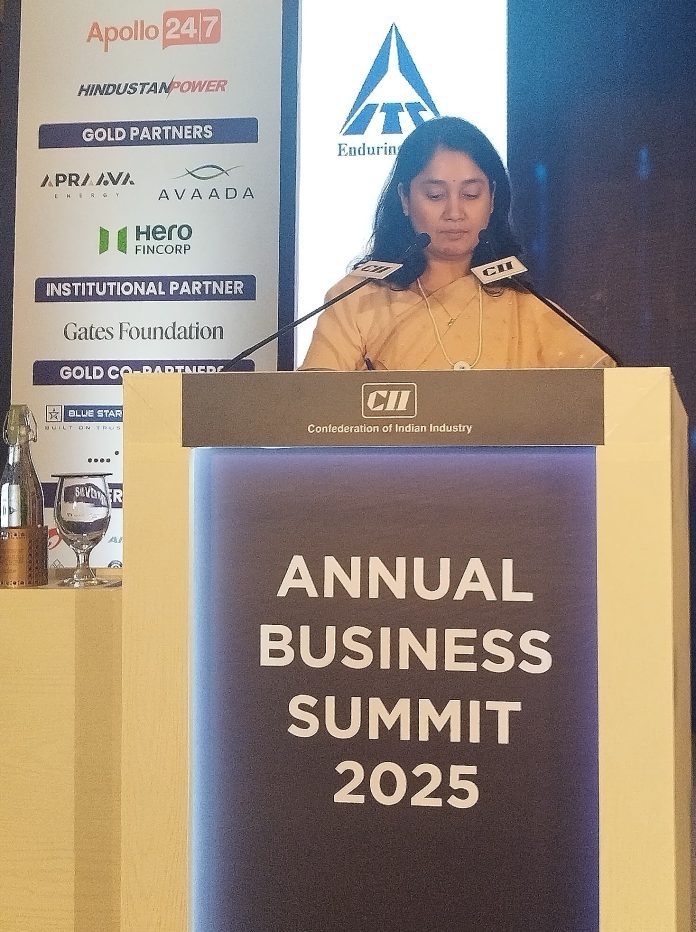New Delhi, May 30, 2025 : “Greenfield industrial cities should be developed near existing cities so that social infrastructure requirements for the new cities are taken care of. This will deal with both, urbanisation and industrialisation. This also allows us to get rid of the legacy issues of existing cities and govt. can plan to develop better infrastructure,” said Shri Rajat Kumar Saini, CEO & MD, National Industrial Corridor Development Corporation Ltd, while addressing the session on Transforming Cities into Frontiers for Economic Growth, organised by the Confederation of Indian Industry (CII) under its flagship event Annual Business Summit 2025.

Highlighting the approach of NICDC in building sustainable industrial ecosystems, Shri Saini noted, “Cities contribute two-thirds of India’s GDP but only one-third of employment. Industrial corridors aim to bridge this gap by promoting greenfield developments like Dholera and Aurangabad’s Shendra Bidkin, with walk-to-work models and integrated social infrastructure.” He added that NICDC has now expanded its scope from a single corridor to 11 across the country, with 12 new industrial smart cities planned, supported by plug-and-play infrastructure. “Lessons from existing urban challenges are being addressed through large-scale master planning and clear land titling,” he emphasized.

Mr Neel Raheja, Chairman, CII National Council on Real Estate and Group President, K Raheja Corp, underscored the need for urban preparedness, stating, “Creating the momentum for people to demand more service facilities is what will make an impact on achieving better cities. Today, close to 30% of our people live in big cities, and with rapid urbanisation, these numbers will just go higher, and we need to plan in advance for that. This focus on urban areas is critical as that is also where the largest number of jobs are being created.”

Dr Shirish Sankhe, Senior Partner Emeritus, McKinsey & Company and Director & Founding Partner, ISEG Foundation, highlighted strategic pivots for urban development. “We must focus on economic master planning before physical planning, retaining local talent, and creating walk-to-work, mixed-use mini cities. Strengthening regional development authorities and embracing the economics of agglomeration are vital for long-term success.”

Mr Sumit Gera, CEO, India Business Park, CapitaLand Investment, advocated for performance-linked urban transformation. “Rate cities on livability, reward improvement with ‘Special Livability Zones’, offering tax benefits. If Indore can top cleanliness rankings, why can’t others? Surat took a jolt, and people took charge to redevelop. Pride and competition drive change.”
The session was moderated by Mr Vinayak Chatterjee, Chairman, CII Infrastructure Council and Founder & Managing Trustee, The Infravision Foundation, who stressed the importance of empowered governance, integrated mobility suggesting the urgent need to establish city UMTAs, and land value capture to increase city capital and build future-ready cities.

